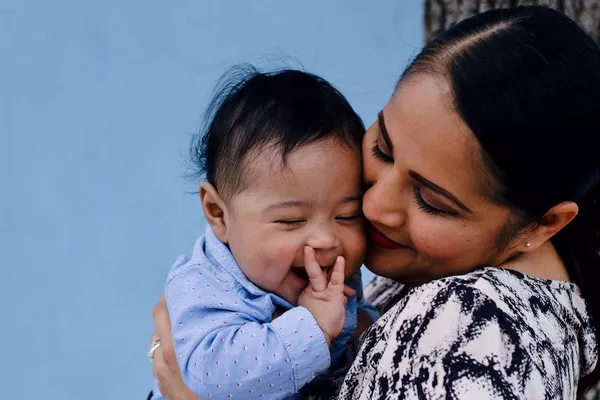In the journey of parenting, witnessing your baby’s growth and development is truly fascinating. By the time your little one reaches the age of 6 months, they will have achieved various milestones and acquired new skills. In this comprehensive guide, we will explore what a 6-month-old should be able to do and provide valuable insights into their cognitive and physical development.
Developmental Milestones for 6-Month-Olds
Motor Skills:
At 6 months, your baby should be able to roll over from tummy to back and vice versa. This newfound ability is a significant achievement in their physical development.
They might also start sitting with support, displaying better head control and balance.
Visual and Auditory Development:
Your baby’s vision has improved, and they can now track moving objects and people with their eyes.
They should react to familiar voices and sounds, indicating better auditory recognition.
Gross and Fine Motor Skills:
Many 6-month-olds can bear weight on their legs when held upright, showing an early sign of standing.
They may also be able to pick up small objects, fine-tuning their fine motor skills.
Baby’s Growth and Abilities at 6 Months
Communication Skills:
By this age, your baby might be babbling, making various sounds to express themselves. This is a fundamental step toward language development.
Feeding Milestones:
If you have started introducing solid foods, your baby should be able to swallow more effectively and show an interest in trying new tastes and textures.
Sleep Patterns:
Most 6-month-olds are sleeping for longer stretches at night, helping both the baby and the parents get better rest.
Social Interaction:
Your baby might start showing preferences for certain people, becoming more attached to primary caregivers and displaying social awareness.
Infant Developmental Stages
Cognitive Development:
Cognitive development is in full swing at 6 months. Your baby can now understand cause and effect relationships, like shaking a rattle to make a noise.
They may also enjoy peek-a-boo games, indicating a growing understanding of object permanence.
Emotional Development:
Your baby’s emotions are becoming more apparent. They may express joy, frustration, and even stranger anxiety.
Consistent bonding and affection from caregivers are crucial for emotional development.
Language Development:
While not yet talking, your baby is absorbing language like a sponge. They may respond to their name and begin to imitate sounds.
Cognitive and Physical Development in Infants
Crawling Preparation:
By 6 months, many babies are preparing for the big milestone of crawling. They may practice by pushing up on their hands and knees.
Create a safe and stimulating environment to encourage this development.
Object Exploration:
Your baby will show a keen interest in exploring objects around them. Providing them with various textures and shapes can aid in sensory development.
Hand-Eye Coordination:
Playing with toys that require grasping and manipulating objects will help enhance your baby’s hand-eye coordination.
Typical 6-Month-Old Baby Skills
Mimicking Expressions:
Babies at this age often imitate facial expressions and gestures, making for delightful interactions.
Playing Peek-a-Boo:
Playing peek-a-boo helps in understanding object permanence and fosters emotional connections.
Solid Food Introduction:
Introducing solid foods should be done gradually and with the guidance of a pediatrician. It’s a significant step in their development.
Parenting Tips for Nurturing a 6-Month-Old
Provide a Safe Environment:
Baby-proof your home to ensure your little explorer can move around without encountering hazards.
Engage in Interactive Play:
Spend quality time playing with your baby. This promotes bonding and aids in their cognitive and physical development.
Maintain a Routine:
Babies thrive on routines. Consistent feeding, sleeping, and playtimes can help your baby feel secure and well-adjusted.
In conclusion, the 6-month mark is a critical stage in your baby’s development. They should exhibit various physical, cognitive, and social skills that mark their journey toward becoming a more independent little person. Remember, every baby is unique and may develop at their own pace. Continue to provide love, care, and a stimulating environment to nurture their growth. As a parent, you play a crucial role in helping your baby reach their developmental milestones.


